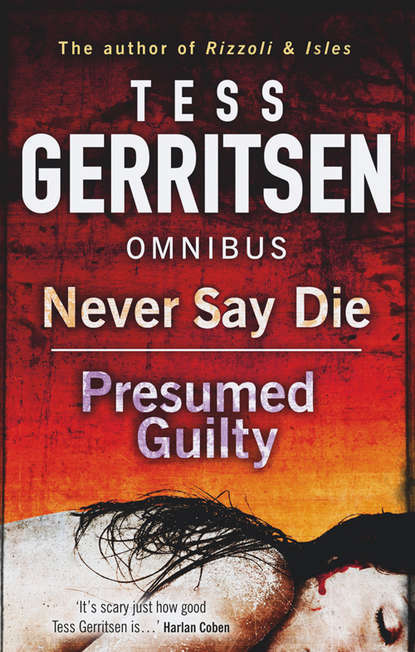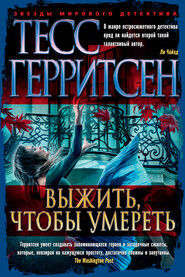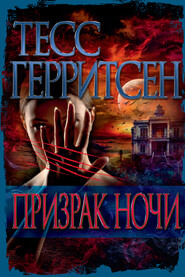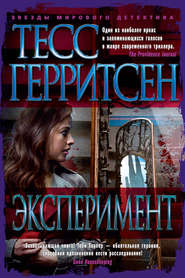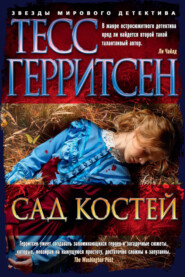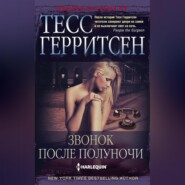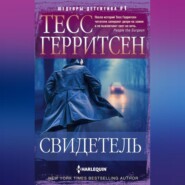По всем вопросам обращайтесь на: info@litportal.ru
(©) 2003-2025.
✖
Never Say Die / Presumed Guilty: Never Say Die / Presumed Guilty
Автор
Год написания книги
2018
Настройки чтения
Размер шрифта
Высота строк
Поля
The manager turned his gaze to Willy’s blood-soaked sleeve. Horrified, he took a stumbling step back. “Good God. I’ll—I’ll call a doctor.”
“Never mind,” said Guy, sweeping Willy off the ground. “It’ll be faster if I take her straight to the hospital.”
Willy let herself be gathered into Guy’s arms. She found his scent strangely reassuring, a distinctly male mingling of sweat and after-shave. As he carried her across the terrace, she caught a swirling view of shocked waiters and curious hotel guests.
“This is embarrassing,” she complained. “I’m all right. Put me down.”
“You’ll faint.”
“I’ve never fainted in my life!”
“It’s not a good time to start.” He got her into a waiting taxi, where she curled up in the back seat like a wounded animal.
The emergency-room doctor didn’t believe in anesthesia. Willy didn’t believe in screaming. As the curved suture needle stabbed again and again into her arm, she clenched her teeth and longed to have the lunatic American hold her hand. If only she hadn’t played tough and sent him out to the waiting area. Even now, as she fought back tears of pain, she refused to admit, even to herself, that she needed any man to hold her hand. Still, it would have been nice. It would have been wonderful.
And I still don’t know his name.
The doctor, whom she suspected of harboring sadistic tendencies, took the final stitch, tied it off and snipped the silk thread. “You see?” he said cheerfully. “That wasn’t so bad.”
She felt like slugging him in the mouth and saying, You see? That wasn’t so bad, either.
He dressed the wound with gauze and tape, then gave her a cheerful slap—on her wounded arm, of course—and sent her out into the waiting room.
He was still there, loitering by the reception desk. With all his bruises and cuts, he looked like a bum who’d wandered in off the street. But the look he gave her was warm and concerned. “How’s the arm?” he asked.
Gingerly she touched her shoulder. “Doesn’t this country believe in Novocaine?”
“Only for wimps,” he observed. “Which you obviously aren’t.”
Outside, the night was steaming. There were no taxis available, so they hired a tuk-tuk, a motorcycle-powered rickshaw, driven by a toothless Thai.
“You never told me your name,” she said over the roar of the engine.
“I didn’t think you were interested.”
“Is that my cue to get down on my knees and beg for an introduction?”
Grinning, he held out his hand. “Guy Barnard. Now do I get to hear what the Willy’s short for?”
She shook his hand. “Wilone.”
“Unusual. Nice.”
“Short of Wilhelmina, it’s as close as a daughter can get to being William Maitland, Jr.”
He didn’t comment, but she saw an odd flicker in his eyes, a look of sudden interest. She wondered why. The tuk-tuk puttered past a klong, its stagnant waters shimmering under the streetlights.
“Maitland,” he said casually. “Now that’s a name I seem to remember from the war. There was a pilot, a guy named Wild Bill Maitland. Flew for Air America. Any relation?”
She looked away. “Just my father.”
“No kidding! You’re Wild Bill Maitland’s kid?”
“You’ve heard the stories about him, have you?”
“Who hasn’t? He was a living legend. Right up there with Earthquake Magoon.”
“That’s about what he was to me, too,” she muttered. “Nothing but a legend.”
There was a pause in their exchange, and she wondered if Guy Barnard was shocked by the bitterness in her last statement. If so, he didn’t show it.
“I never actually met your old man,” he said. “But I saw him once, on the Da Nang airstrip. I was working ground crew.”
“With Air America?”
“No. Army Air Cav.” He sketched a careless salute. “Private First Class Barnard. You know, the real scum of the earth.”
“I see you’ve come up in the world.”
“Yeah.” He laughed. “Anyway, your old man brought in a C-46, engine smoking, fuel zilch, fuselage so shot up you could almost see right through her. He sets her down on the tarmac, pretty as you please. Then he climbs out and checks out all the bullet holes. Any other pilot would’ve been down on his knees kissing the ground. But your dad, he just shrugs, goes over to a tree and takes a nap.” Guy shook his head. “Your old man was something else.”
“So everyone tells me.” Willy shoved a hank of windblown hair off her face and wished he’d stop talking about her father. That’s how it’d been, as far back as she could remember. When she was a child in Vientiane, at every dinner party, every cocktail gathering, the pilots would invariably trot out another Wild Bill story. They’d raise toasts to his nerves, his daring, his crazy humor, until she was ready to scream. All those stories only emphasized how unimportant she and her mother were in the scheme of her father’s life.
Maybe that’s why Guy Barnard was starting to annoy her.
But it was more than just his talk about Bill Maitland. In some odd, indefinable way, Guy reminded her too much of her father.
The tuk-tuk suddenly hit a bump in the road, throwing her against Guy’s shoulder. Pain sliced through her arm and her whole body seemed to clench in a spasm.
He glanced at her, alarmed. “Are you all right?”
“I’m—” She bit her lip, fighting back tears. “It’s really starting to hurt.”
He yelled at the driver to slow down. Then he took Willy’s hand and held it tightly. “Just a little while longer. We’re almost there…”
It was a long ride to the hotel.
Up in her room, Guy sat her down on the bed and gently stroked the hair off her face. “Do you have any pain killers?”
“There’s—there’s some aspirin in the bathroom.” She started to rise to her feet. “I can get it.”
“No. You stay right where you are.” He went into the bathroom, came back out with a glass of water and the bottle of aspirin. Even through her cloud of pain, she was intensely aware of him watching her, studying her as she swallowed the tablets. Yet she found his nearness strangely reassuring. When he turned and crossed the room, the sudden distance between them left her feeling abandoned.
She watched him rummage around in the tiny refrigerator. “What are you looking for?”
“Found it.” He came back with a cocktail bottle of whiskey, which he uncapped and handed to her. “Liquid anesthesia. It’s an old-fashioned remedy, but it works.”
“I don’t like whiskey.”





